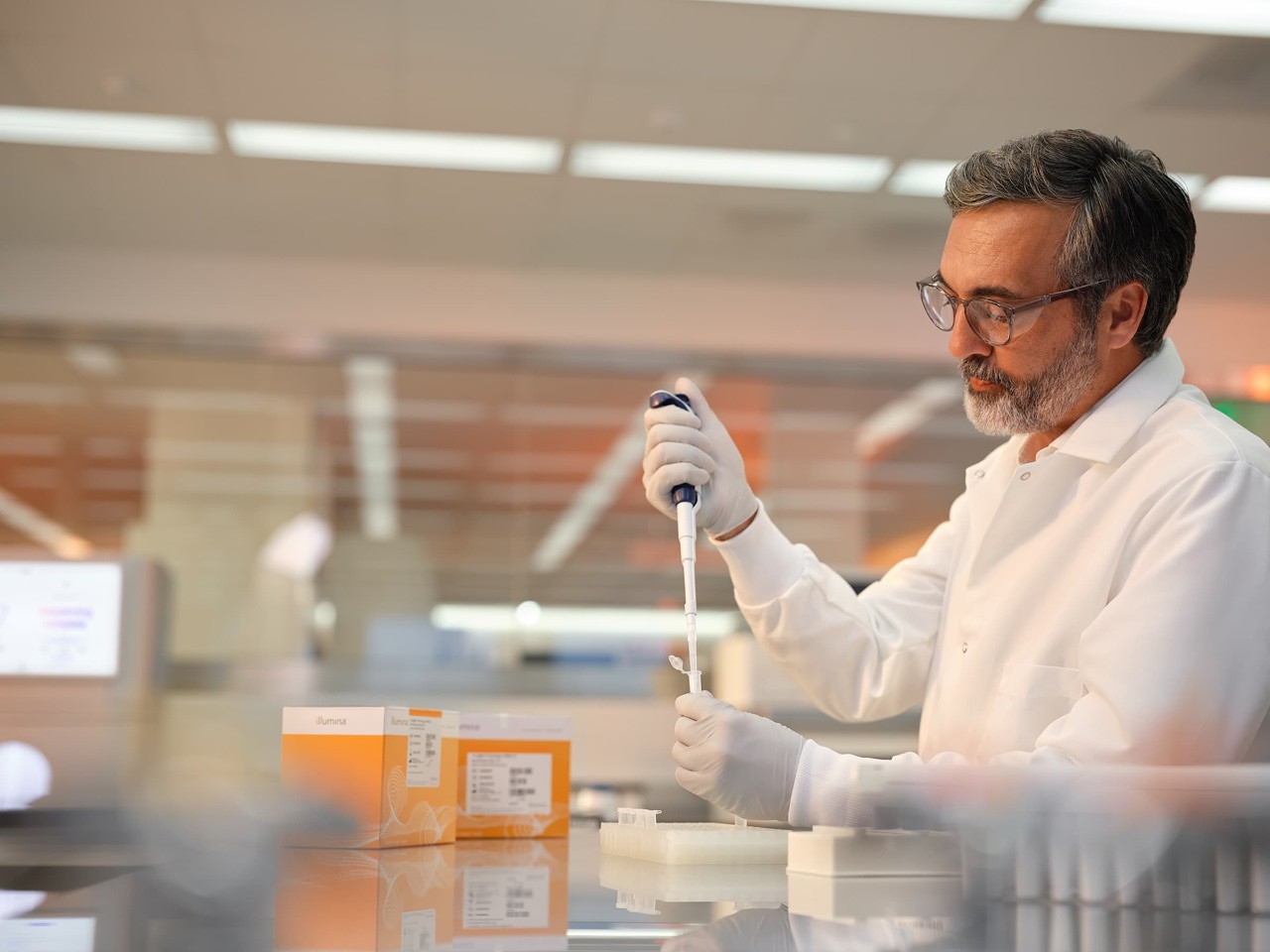Next-generation sequencing (NGS) and genomic tools play an important role in diagnostic testing. Advances in these technologies are revolutionizing the practice of medicine. These tools enable comprehensive and rapid analysis of patient genetic material for cancer and other disease diagnostics, as well as inform treatment decisions.1
Illumina genomic in vitro diagnostic (IVD) instruments and products empower clinical laboratories to discover solutions for improving patient outcomes. Our wide range of offerings, from novel NGS assays to robust instruments and accurate data analysis solutions, are built to withstand the rigor and precision of the IVD world.

